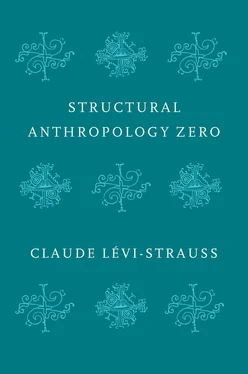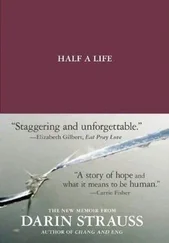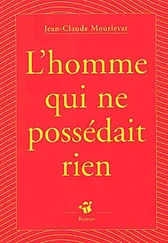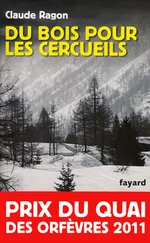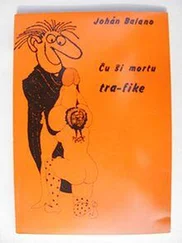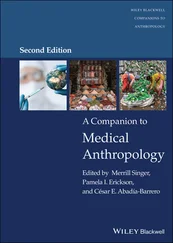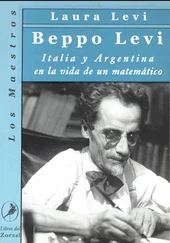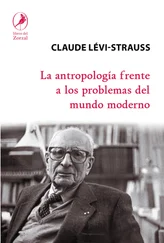This memory conjures up another, of an inhumane company town south of Dacca, in which workers who had fled partition were guarded by armed policemen, squeezed into rows of “bare cement rooms, which can be swilled out,” rooms that were reminiscent of “poultry yards specially adapted for the cramming of geese.” 54In both cases, housing is reduced to “mere points of connection with the communal sewer” and human life “to the pure exercise of the excretory functions” 55– excretory functions the performance of which forced passengers on board the Capitaine-Paul-Lemerle to accept the indignity of “collective squatting,” which seems to have been for Lévi-Strauss the most unbearable aspect of the crossing. There is something absurd about these various images and analogies. They reflect both the difficulty of grasping the unthinkable and a vague sense that this history concerns him very directly as a Jew, however assimilated. Lévi-Strauss does not mention it in his own account, but we know thanks to André Breton that, upon landing at Fort-de-France, he was greeted with anti-Semitic insults by the local gendarmes. 56Without mentioning it directly in Tristes Tropiques , the anthropologist noted: “I knew that, slowly and gradually, experiences such as these were starting to ooze out like some insidious leakage from contemporary mankind, which had become saturated with its own numbers …, as if its skin had been irritated by the friction of ever-greater material and intellectual exchange brought about by the improvement in communication.” 57Lévi-Strauss was here only rehearsing a common position of his time, according to which the demographic explosion of the human race was the most serious threat to a planet of limited resources. 58But this led him to a singular position, namely his refusal to grant the Shoah any special status: the barbarity that Europe had experienced could unfortunately not be reduced to “the result of an aberration on the part of one nation, one doctrine, or one group of men. I see them rather as a premonitory sign of our moving into a finite world, such as southern Asia had to face a thousand or two thousand years ahead of us.” 59This is the way to make sense of the curious formulation of 1954, in which Lévi-Strauss states that, in 1941, he “had not suspected at the time [that the crossing aboard the Capitaine-Paul-Lemerle would be] so extraordinarily symbolic of the future.” 60
From the 1950s onward, Lévi-Strauss’s anthropology thus seemed to be haunted by the memory and the mere possibility of the Shoah (which is, however, never named). There is another sign of this subterranean laboring: the curious emergence, in the 1954 article “Diogène couché,” of the figure of Lazarus. In this long article, which is an aggressive response to the attacks of Roger Caillois on Race and History (so aggressive, indeed, that Lévi-Strauss always refused to have it republished), the anthropologist is compared to the New Testament figure who, in coming back to life, remains marked by his experience of death: back to civilization, the anthropologist “does not return the same as he was when he left.” “The victim of a sort of chronic uprooting, he will remain psychologically mutilated, never again feeling at home anywhere. … He does not circulate between savage and civilized countries; in whichever direction, he is always returning from the dead … and, if he does manage to come back, after having reorganized the disjointed elements of his cultural tradition, he remains nonetheless one who is resurrected.” 61In the early 1950s, Lazarus was the most common allegory for referring to and thinking about the survivors returning from the camps. It is present notably in the works of Maurice Blanchot and Jean Cayrol, two authors whose intellectual worlds were quite different from that of Lévi-Strauss, which makes the coincidence all the more unsettling. 62It was at this same time that Lévi-Strauss wrote Tristes Tropiques , which can be seen as subconsciously guided by the analogy between the fate of the surviving European Jews and that of the Amerindians crushed by Western modernity, both “fodder” – “concentration camp fodder” for one, “pathetic creatures caught in the toils of mechanized civilization” for the other, 63both forced to reorganize the “disjointed limbs” of a cultural tradition in tatters. Shedding light on the principles that preside over such reorganizations will hence become the object of Lévi-Strauss’s anthropological work.
It is hard not to see that moment as a turning point, but Lévi-Strauss did not in fact give up on politics; he gave up on his position as an expert in politics and on the ideal of an articulation between scholarly analysis and political prescription. As regards his personal trajectory, the early 1950s in a way repeated the crisis he had experienced upon returning from his Brazilian fieldwork in 1939. Indeed, the return to France from his second Brazilian expedition had been characterized, as is often the case with anthropologists, by an intense personal and intellectual crisis, which led to his separation from his first wife, Dina, and to abortive attempts at writing literature, all of which dealt with the question of vocation and individual accomplishment. 64A few months later, his escape and exile to New York forced him to undertake the work of personal, professional and theoretical reconstruction. 65The early 1950s again disrupted his life on every front, and the writing of Tristes Tropiques , which coincided with a reconfiguration of his personal life, undoubtedly played a therapeutic role, enabling him to emerge from that state while also laying the bases for a total form of structuralism, one which abandoned any inclination to law-making sociology. From then on, the work of Lévi-Strauss flowed in two veins: one, the search for intelligibility based on the remains of a catastrophic history (and, to his mind, the genocide of Amerindians was not essentially different from the destruction of European Jews) 66– a search whose governing principle is described in The Savage Mind and whose result is the core of the Mythologiques volumes, which are based on myths and everything anthropological inquiry has been able to yield in terms of testimonies on ancient practices prior to the Conquest; and, two, sombre reflections on the human species as a whole in relation to its environment and to all living things, which were to form the core of Race and Culture , as well as of some of the articles in The View from Afar and certain passages of The Story of Lynx . In 1949, the anthropologist fancied himself a diplomat who “spoke all the languages” and could contribute to cooperation between societies. Now, with a human species “full of itself” and doomed by its own excesses, he saw himself as an agent working on behalf of non-humans, faithful to the “lessons” he had learned from the small communities he studied, which never considered mankind as “the lord and master of Creation, free to accord itself an exorbitant privilege over all the manifestations of nature and life.” 67
The texts collected in the present volume were written before this bifurcation; they speak to a time when Lévi-Strauss still conceived of history as a force whose course could be influenced. He would subsequently come to abandon this idea, turning instead to a logical order that was to be found against history, at least against the history that was playing out at the global level, conceived as the theatre of confrontation on which the imbalance of forces was such that it led to the annihilation of the communities involved, scattering symbolic forms that could then only be collected in fragments.
This is the ultimate sense of the “zero” that was so essential to the genesis of structuralism: Roman Jakobson’s “phoneme zero” and Roland Barthes’s “writing degree zero,” each of which referred to specific things of course. For Lévi-Strauss, the zero signifier represented the enabling condition for any comparison between distinct symbolic entities. But the term also seemed apt in that it subsumes fundamentally contradictory historical connotations, which suggest renewal and rebirth, of course, but also unthinkable horror, whether we think of Rossellini’s Germany, Year Zero , Blanchot’s man “at point zero,” 68or Cayrol’s man “in the zero state” – not only the promise of tabula rasa , for which Lévi-Strauss yearned at the end of the war, but also and at the same time a sense of foreboding for which the impending ecological catastrophe only provides terrifying confirmation: the tragic awareness that civilization carries within itself its own destruction.
Читать дальше
